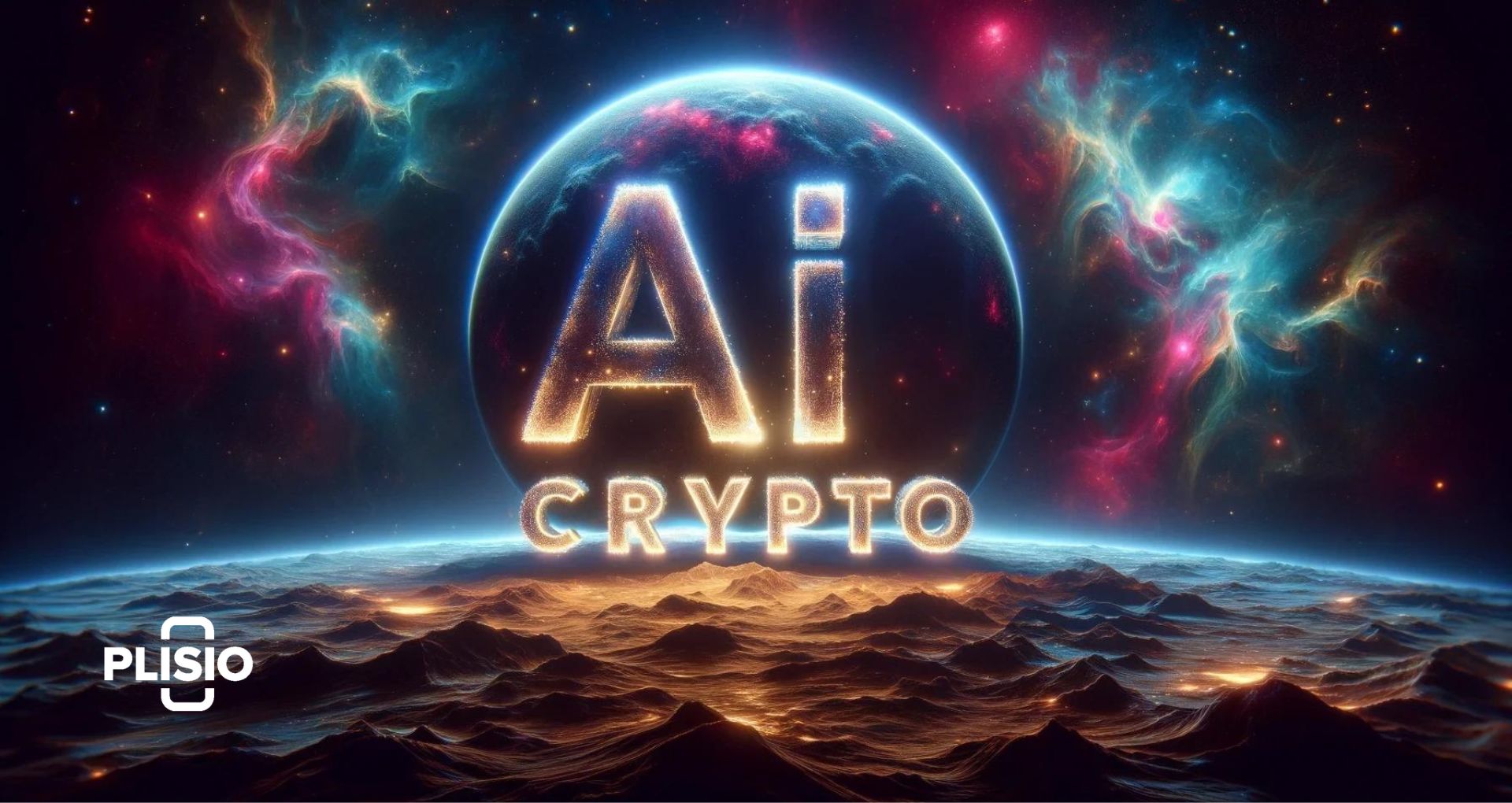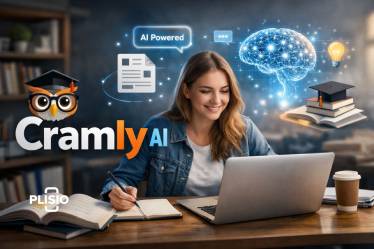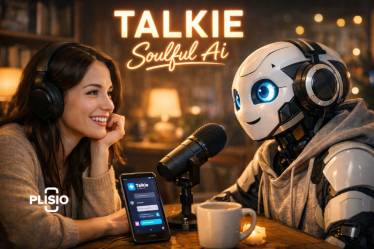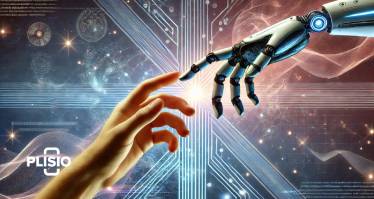AI crypto tokens: how do they function?

Artificial Intelligence (AI) crypto tokens are at the forefront of merging two significant technological advancements of the last decade: artificial intelligence and blockchain technology.
The AI sector has ushered in a wave of cutting-edge software solutions that mimic human cognitive functions. When provided with basic commands, these technologies are capable of executing complex operations, such as crafting personalized vacation plans or generating original content. Prominent examples of such AI-driven platforms include OpenAI's ChatGPT, Midjourney, and Google's Gemini.
In parallel, numerous cryptocurrency projects are leveraging AI innovations to enhance blockchain functionalities. This synergy aims to exploit AI capabilities within the blockchain framework, promising a novel integration of AI services with the security and transparency of decentralized digital currencies.
This integration has birthed a new niche within the crypto world—dedicated to decentralized, peer-to-peer applications that facilitate the sharing of AI resources. Users can access AI assistance for data queries, execute advanced on-chain activities, and utilize AI for a range of other intelligent functions, thereby enhancing the utility and efficiency of blockchain networks. This emerging subsector not only expands the practical applications of cryptocurrencies but also sets the stage for further innovations in both AI and blockchain ecosystems.
How do AI crypto coins operate?
AI crypto coins function similarly to other cryptocurrencies but with a unique focus on supporting artificial intelligence platforms.
Like Bitcoin and many other digital currencies, AI crypto coins operate on a blockchain, which is essentially a secure, digital ledger. This ledger records all transactions across a network of computers, ensuring transparency and security without the need for a central authority.
The main role of these AI crypto coins is to act as utility tokens. This means they are used within specific AI-driven platforms much like Ethereum (ETH) or Solana (SOL) are used in their respective ecosystems. These tokens can be used for a variety of purposes, including making payments, accessing services, or renting AI models.
Additionally, these tokens incentivize users to participate actively on the AI platforms. For instance, users might earn tokens for contributing data or improving the AI models, which not only enhances the platform but also rewards users for their engagement.
Overall, AI crypto coins are a bridge between the cutting-edge technology of artificial new ways, allowing users to interact with and benefit from AI advancements while maintaining the decentralization and security of blockchain technology.
What makes AI crypto tokens unique?
AI crypto tokens differ from standard cryptocurrencies primarily through their integration with artificial intelligence technologies and their focus on AI-based applications.
These tokens often facilitate the creation of decentralized marketplaces that connect individuals needing computational power for AI tasks—such as image rendering, operating chatbots, or conducting predictive modeling—with those who have excess computing capacity to offer. This setup not only supports the burgeoning field of AI but also democratizes access to necessary computational resources.
Utilizing the inherent features of blockchain technology, these platforms can operate continuously, around the clock. This is crucial as it ensures that users can access computational resources anytime they need, thereby significantly enhancing efficiency and scalability of AI projects.
Furthermore, AI crypto tokens typically incorporate smart contracts to automate transactions, ensuring that exchanges of computational power are secure and transparent. This aspect of blockchain technology is essential for maintaining trust among users who often do not interact directly.
In summary, AI crypto tokens are designed to support specific functionalities within AI ecosystems, making them distinct from general-purpose cryptocurrencies that mainly serve as digital money or stores of value.
Key features of AI crypto tokens
AI crypto tokens offer a suite of distinctive features that make them particularly suited for powering digital platforms, especially compared to traditional fiat currencies.
For instance, if someone in Argentina wants to rent computational resources from a provider in South Korea, using local currencies might not be feasible. Transacting in a common fiat currency could be costly and time-consuming due to exchange rates and banking processes.
In contrast, cryptocurrencies provide a more streamlined solution with several key advantages:
- Permissionless Transactions: Users can send or receive AI crypto tokens without the need for approval from a central authority such as a bank, facilitating smoother and more direct exchanges.
- Speed: Transactions with cryptocurrency tokens are generally faster than those involving traditional banking systems, allowing for quick processing and settlement.
- Cost Efficiency: Cryptocurrency transactions can be executed with minimal fees, often just a fraction of a cent, making it economically viable even for small-scale transactions.
- Availability: Blockchain networks are operational 24/7/365, enabling transactions at any time, unlike conventional financial markets that have specific operating hours.
- Transparency: The use of blockchain technology ensures that all transactions are recorded transparently and can be tracked in real-time, enhancing trust among users.
- Fractionalization: AI crypto tokens can be divided into very small units, making them ideal for micropayments, which are particularly useful in sharing services like computational power.
- Global Accessibility: Unlike fiat currencies, which are typically tied to a specific country, cryptocurrencies can be used anywhere, removing geographical barriers and facilitating international transactions.
These features make AI crypto tokens an essential tool for the development and operation of AI-driven platforms, offering a global, efficient, and transparent medium for transactions.
How are AI coins minted?
AI crypto coins are generated using techniques similar to those employed for creating other types of cryptocurrency tokens, often serving as utility or reward tokens within their respective platforms.
The process typically starts with minting the coins on a well-established Layer 1 blockchain platform such as Ethereum or Cosmos. Developers utilize specific token standards, such as ERC-20 for Ethereum or ICS for Cosmos, which are essentially templates of code that facilitate the token creation process. These standards ensure that the new tokens will work seamlessly within the existing infrastructure of the blockchain.
For instance, when tokens are issued on the Solana blockchain, they adhere to its native token standards, making them instantly compatible with Solana-based wallets, decentralized applications (dApps), and other tokens. This integration is vital as it allows for a smooth user experience and interoperability between various applications and services within the ecosystem.
Moreover, these token standards include built-in functionalities such as smart contracts, which can execute automated transactions and other operations based on predetermined conditions. This capability is especially beneficial in AI-driven platforms where complex, automated interactions are necessary.
In summary, AI crypto coins are created through a structured process on established blockchains, utilizing predefined coding standards that ensure compatibility, efficiency, and the ability to support complex functions suitable for AI applications.
What makes AI crypto tokens valuable?
AI crypto tokens can be incredibly useful, providing several key benefits that support the development and dissemination of AI technologies:
- Incentivizing Contributions: AI tokens reward individuals for offering data, computing resources, or expertise to AI projects. This incentivization promotes a collaborative and decentralized model where each participant can directly contribute to and benefit from advancements in AI technology.
- Facilitating Payments for AI Services: AI tokens enable payments for services such as data analysis, predictive modeling, or personalized recommendations. By using these tokens, transactions between service providers and users become more straightforward and efficient, eliminating the need for traditional, centralized financial intermediaries.
- Enabling Governance: Many AI projects issue governance tokens, which grant token holders the right to vote on key decisions affecting the project. These decisions can include protocol modifications, adjustments in incentive structures, or decisions on funding allocations for further research and development.
- Creating Decentralized Marketplaces: AI tokens are pivotal in establishing decentralized marketplaces where users can trade AI algorithms, models, computational power, and datasets. These marketplaces facilitate greater accessibility and liquidity, allowing developers and researchers to share resources and innovations seamlessly.
Furthermore, the use of blockchain technology in conjunction with AI tokens ensures transparency and security, making these transactions verifiable and less susceptible to fraud. This integration of blockchain with AI creates a robust infrastructure for developing and deploying AI solutions, which can accelerate technological innovation and broaden the application of artificial intelligence across different sectors.
AI token risks?
AI crypto tokens, while occupying a distinct market niche, share many common risks with other cryptocurrency assets, including fraud, significant market volatility, and ambiguous regulatory frameworks.
The integration of AI technologies introduces additional, unique challenges. These include concerns over data privacy, potential missteps in AI decision-making, and the technical complexities of merging AI with blockchain. Such complexities can lead to interoperability and scalability issues, presenting further obstacles for AI crypto projects.
Investors in this sector also face specific project-based risks. For example, there's the danger that token projects may fail to fulfill their objectives, follow through on development plans, or secure widespread adoption and sustainability. Although these risks are not exclusive to AI crypto tokens, the nascent nature of these projects means they often lack a proven track record of durability and long-term viability within the broader crypto market.
Moreover, the excitement around AI and blockchain technology can lead to overhype and speculation, resulting in pronounced price fluctuations. AI crypto tokens, being among the latest trends, are particularly susceptible to speculative bubbles as investors chase potentially high, quick returns.
Therefore, it is crucial for potential investors to perform extensive due diligence and evaluate the viability, team expertise, and operational integrity of any AI crypto token project before investing, just as one would with any traditional financial asset.
Top AI crypto coins
- The Graph (GRT): The Graph is an open-source protocol for indexing and querying data from blockchains, allowing applications to perform quick searches by organizing data into "Subgraphs". It uses AI to enhance automatic decision-making tools, which is integral for the efficiency of decentralized applications (dapps) like Aave, Curve, and Uniswap, making data more accessible and actionable for developers and users.
- Injective Protocol (INJ): Injective Protocol is a decentralized exchange (DEX) that supports advanced trading options such as margin trading, derivatives, and forex futures across multiple blockchains. It leverages an order book model to combine the high throughput of traditional finance systems with the transparency and security of a decentralized exchange. The platform utilizes AI algorithms to optimize trading strategies and improve market efficiency, enabling smarter and more effective trading decisions.
- Fetch.AI (FET): Fetch.AI operates on the premise of autonomous "agents" that perform tasks and provide services as programmed, using AI to automate and enhance their capabilities. These agents can represent real-world data, negotiate automatically, and operate independently. This allows for dynamic automation of complex systems and processes, such as smart transportation and supply chain logistics, reflecting a step towards an adaptive, automated economy.
- Theta Network (THETA): Theta Network facilitates decentralized video streaming and delivery by using its blockchain as a decentralized cloud. It rewards users who share their spare bandwidth and computational resources, improving video streaming quality and accessibility. Theta incorporates AI in its operations to optimize network resource allocation and viewer engagement, pushing forward more efficient and decentralized media and entertainment models.
- Render Network (RNDR): Render Network harnesses the power of distributed GPU acceleration to democratize the digital content creation process. By connecting users needing GPU power for tasks like 3D rendering or AI model training with those who have spare GPU capacities, Render facilitates a peer-to-peer market. This not only maximizes the use of existing computational resources but also accelerates content production and AI computations, with contributors earning RNDR tokens in return.
- Filecoin (FIL): Filecoin is a decentralized storage network vital for the AI sector, providing secure and reliable data storage solutions. It supports the backend needs of AI operations by ensuring that the voluminous data generated and required by AI models is stored securely and accessibly, facilitating the development and deployment of sophisticated AI technologies.
- Internet Computer (ICP): The Internet Computer aims to reinvent the internet as a decentralized and more secure platform by eliminating traditional performance bottlenecks and security risks. It introduces a decentralized AI model that runs AI operations as smart contracts, ensuring transparency and enhancing trust in AI applications by enabling the verification of data inputs and processes, which is crucial for developing reliable and unbiased AI systems.
These AI crypto tokens demonstrate how blockchain and AI can converge to create more efficient, transparent, and decentralized solutions across various industries.




